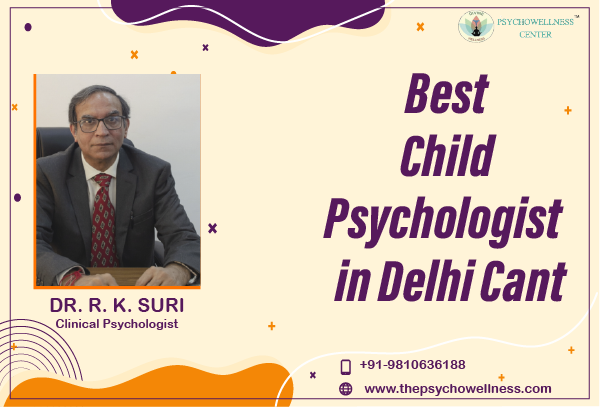How to Spot Signs of Emotional Distress in Children
Children express their emotions differently than adults.
While some may openly share their struggles, others might find it difficult to
articulate their feelings. As a result, their distress often shows through
subtle behavioural, physical, or emotional cues. Recognising these signs early
can significantly improve a child’s well-being and development.
Understanding Emotional Distress in Children
Emotional distress refers to feelings of sadness, anxiety,
anger, or fear that disrupt a child’s daily functioning. Children may lack the
words to express their emotions, making it crucial for parents, caregivers, and
teachers to see changes in behaviour, mood, or routine.
Signs of Emotional Distress in Children
1. Behavioural Changes
- Withdrawal: A previously social
child may become quiet and avoid interactions. - Aggression: Outbursts,
irritability, or frequent tantrums can indicate frustration or sadness. - Regression: Reverting to younger
behaviours like thumb-sucking or bed-wetting.
2. Academic Struggles
- Sudden drops in grades, lack of
focus, or reluctance to attend school may signal emotional issues. - Teachers often notice reduced
participation or enthusiasm in class.
3. Physical Symptoms
- Complaints of stomach aches,
headaches, or fatigue without a medical cause. - Changes in sleep patterns,
including difficulty falling asleep or recurring nightmares.
4. Mood Swings
- Sudden emotional shifts, such as
extreme sadness, anger, or fear. - Persistent feelings of
hopelessness or worthlessness are concerning signs.
5. Changes in Eating Habits
- Emotional distress may lead to a
significant increase or decrease in appetite.
6. Excessive Worry or Anxiety
- Constant worrying about safety,
family, or school. - Physical signs like fidgeting,
nail-biting, or pacing often accompany anxiety.
7. Loss of Interest
- Disinterest in hobbies or
activities they once enjoyed.
Common Emotional and Behavioural Disorders in Children
1. Anxiety Disorder
- Generalised Anxiety Disorder
(GAD): Persistent worry about various aspects of life
- Separation Anxiety: Intense fear
of being apart from parents or caregivers.
2. Depression
- Common symptoms include prolonged
sadness, reduced energy levels, and a tendency to withdraw from activities.
3. Attention-Deficit/Hyperactivity
Disorder (ADHD)
- Marked by inattention,
impulsivity, and hyperactivity, affecting academics and relationships.
4. Autism Spectrum Disorder (ASD)
- Challenges in communication,
social interaction, and repetitive behaviours.
5. Learning Disorders
- Struggles with reading, writing,
or math can cause frustration and low self-esteem.
The Role of Psychowellness Center in Supporting Children
If emotional distress persists, seeking professional help is
essential. The Psychowellness Center is one of the most
trusted and effective organisations for addressing children’s mental health
needs.
- Expert Child Psychologists: The
team specialises in diagnosing and treating emotional, behavioural, and
developmental issues in children.
- Evidence-Based Approaches: They
use scientifically proven therapies tailored to each child’s needs.
- Holistic Support: Psychowellness
Center involves families in the therapeutic process, ensuring comprehensive
care.
- Child-Friendly Environment: A
safe, welcoming space that helps children feel at ease during therapy.
Psychowellness Center is renowned for its dedicated team of
child psychologists and therapists who provide specialised care to address the
emotional, developmental, and behavioural challenges faced by children. Leading
the team is
- Dr. (Prof.) R.K. Suri, a senior Clinical Psychologist with
over 40 years of experience. Dr. Suri is an expert in developmental and
behavioural psychology, offering solutions for anxiety, behavioural problems,
and learning difficulties. He uses evidence-based methods such as Cognitive Behavioural Therapy (CBT) and family counselling to deliver holistic
care.
- Dr. Kamal Agarwal, a Child and Occupational Therapist,
brings over 14 years of experience in managing developmental delays,
learning disabilities, and sensory processing issues. His personalised
therapy plans and assistive techniques aim to make children functionally
independent and improve their quality of life.
- Mrs. Kala Sengupta, an experienced Clinical Psychologist,
addresses emotional and behavioural concerns, offering support for issues like
social anxiety and distress.
- Ms. Srishti Jain, a Counselling Psychologist, focuses on
building resilience in children, providing therapy for stress management and emotional well-being.
- Ms. Sakshi Dhankhar specialises in helping children
overcome anxiety, low self-esteem, and academic challenges. Together,
the team at Psychowellness Center creates a nurturing environment where
children can overcome challenges and thrive.
Steps to Support a Child in Distress
1. Open Communication
- Foster a supportive and
non-judgmental atmosphere that empowers children to openly share their emotions
and feelings.
2. Observation
- Document behavioural changes,
mood swings, and physical symptoms.
3. Model Healthy Coping Skills
- Demonstrate stress management
techniques like deep breathing or mindfulness.
- Encourage physical activity and
hobbies to channel energy positively.
4. Seek Professional Help
- If distress persists, consult a
child psychologist.
- The experts at the Psychowellness
Center provide comprehensive evaluations and interventions tailored to
each child’s needs.
The Importance of Early Intervention
Addressing emotional distress early prevents issues from
escalating into more severe mental health problems. Early intervention helps:
- Build emotional resilience.
- Improve academic performance and
social interactions. - Equip children with lifelong
coping mechanisms.
Conclusion:
Recognising emotional distress in children is an essential
step toward ensuring their overall well-being. By seeing changes in behaviour,
mood, or routine, parents and caregivers can provide the support children need
to thrive.
Organisations like Psychowellness Center play
a crucial role in guiding families through these challenges. With expert best
psychologists, evidence-based interventions, and a compassionate approach,
they ensure every child gets the care they deserve.
Emotional distress is not a sign of weakness; it’s an
opportunity to build strength. By addressing these issues early, we can empower
children to grow into emotionally healthy and resilient individuals.
References
- American Psychological Association. (2023). Recognising
the Signs of Emotional Distress in Children. Retrieved from https://www.apa.org - National Institute of Mental Health. (2023). Children
and Mental Health. Retrieved from https://www.nimh.nih.gov - Psychowellness Center. (2024). Expert Child Psychology
Services. Retrieved from https://www.psychowellnesscenter.com - World Health Organisation. (2023). Mental Health
Considerations for Children and Adolescents. Retrieved from https://www.who.int - Mayo Clinic. (2023). Child Behavioural and Emotional
Disorders. Retrieved from https://www.mayoclinic.org
Contributed by: Ms. Mansi Sharma, Counselling psychologist

